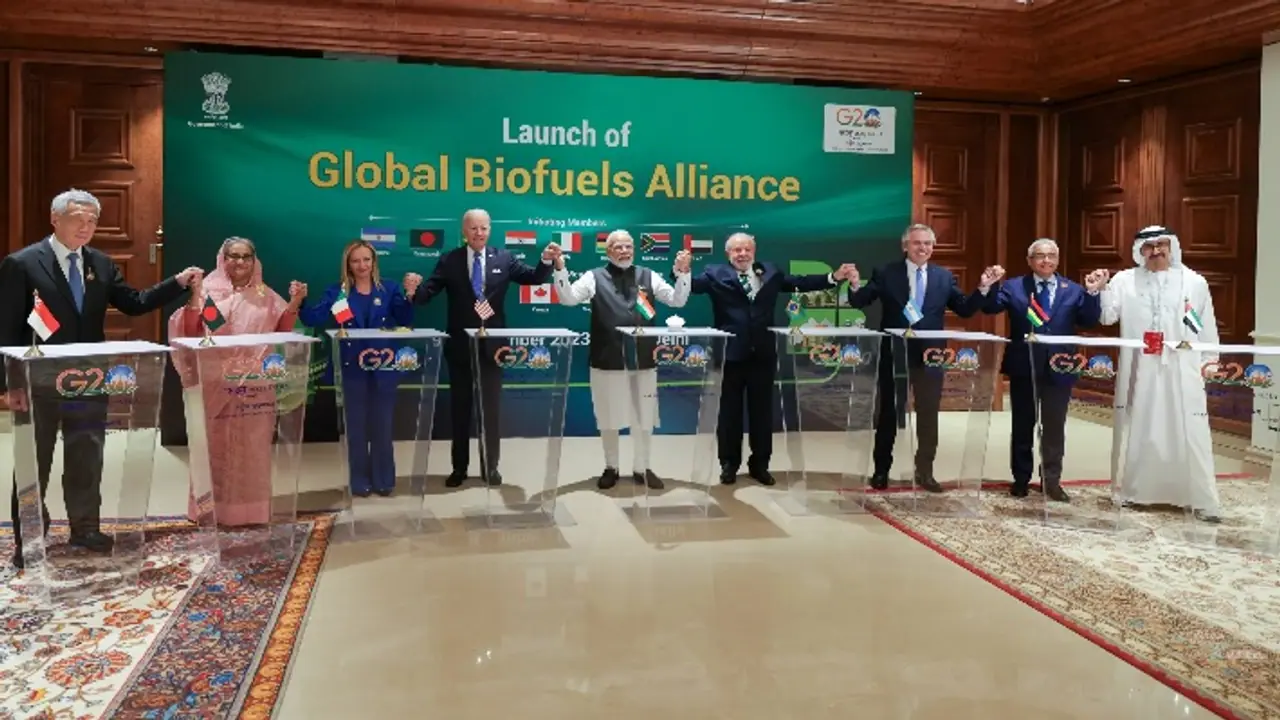India, Brazil, the United States, and a consortium of countries are collaborating to boost the global use of eco-friendly biofuels. Their alliance, the Global Biofuels Alliance (GBA), aims to enhance biofuel technology, promote green biofuels and establish transparent regulations with input from stakeholders. Girish Linganna explains
India, Brazil, and the United States, along with 19 other countries and 12 international groups, said they are teaming up to work together on making environmentally friendly fuels during a meeting related to the G20. The alliance's goal is to increase the use of biofuels globally. They plan to achieve this by improving biofuel technology, promoting the use of environmentally friendly biofuels, establishing clear rules and certifications with input from various stakeholders, and becoming a central hub of knowledge and expertise.

Their aim is to unite people from different parts of the world to enhance biofuels and encourage their widespread use. The countries that started this alliance are Argentina, Bangladesh, Italy, Mauritius, South Africa, and the United Arab Emirates. Canada and Singapore are not part of the founding group; they are observing from the sidelines.
Biofuel or bioenergy is made from natural stuff like leftover crops or plant waste. Using biofuels can cut down on pollution and help countries achieve their goal of having no net carbon emissions.
In February 2023, at the India Energy Week, Union Minister Hardeep Singh Puri introduced the alliance. India has set a goal to achieve net-zero carbon emissions by 2070. As the world's third-largest oil importer and consumer, with 85% of its crude oil coming from imports, India is eager to increase its production of biofuels.
India's Biofuel Initiatives: Advancing Sustainable and Clean Alternatives
India is one of the leading countries in the world in promoting biofuels as a sustainable and clean alternative to fossil fuels. Biofuels are fuels derived from renewable sources such as biomass, agricultural waste, and municipal solid waste. They can reduce greenhouse gas emissions, enhance energy security, and provide socio-economic benefits. Here are some facts about India's biofuel initiatives:
* India launched the Global Biofuel Alliance (GBA) at the G20 Summit in New Delhi on September 9, 2023. The GBA is a collaborative platform for nations to exchange best practices, accelerate technology development, and bolster policy frameworks for biofuels. The GBA is led by India, the United States, and Brazil, which are among the top producers and consumers of biofuels in the world.
* India plans to increase the blending of ethanol in gasoline to 20% by 2025, up from the current level of 12%. Ethanol is a biofuel obtained from sugarcane, grains, and agricultural waste. Blending ethanol with gasoline can reduce oil imports, lower carbon emissions, and support farmers.
* India is also setting up dozens of compressed biogas (CBG) plants across the country. CBG is a biofuel produced from organic waste such as animal dung, kitchen waste, and crop residue. CBG can be used as a substitute for natural gas in vehicles, industries, and households. CBG can also help reduce air pollution caused by burning crop stubble.
